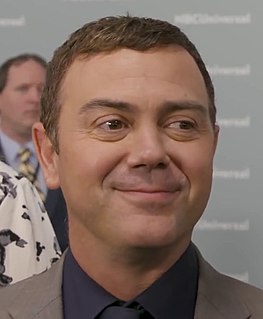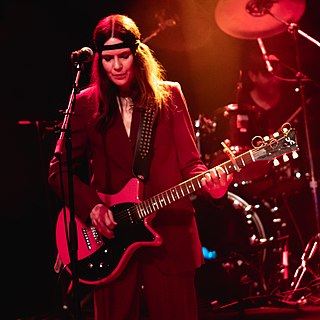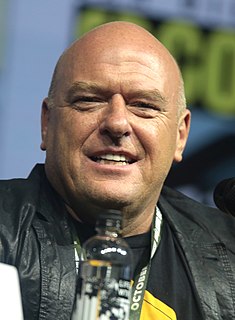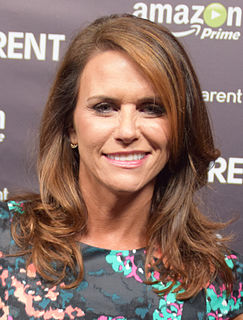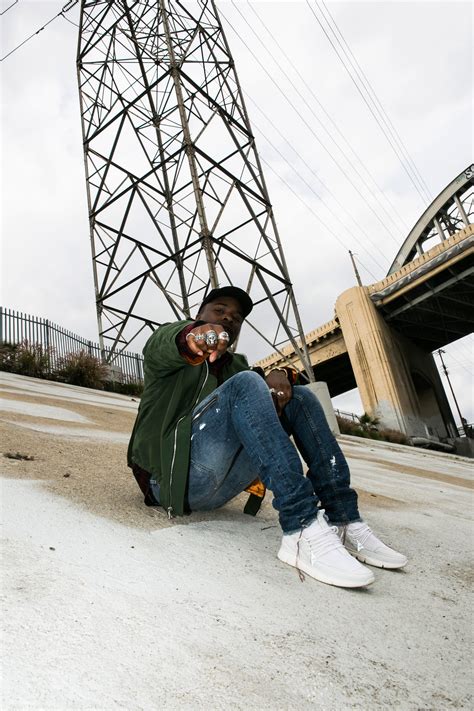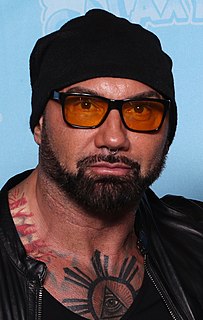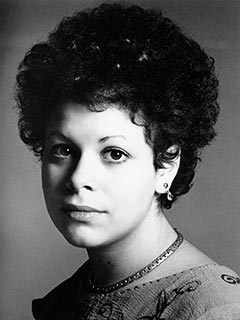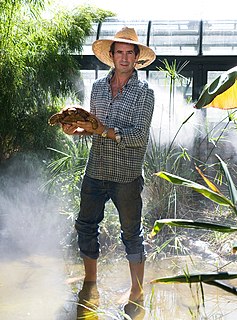A Quote by Kathleen Hanna
A lot of artists are just really stupid about money, and it's really hard to find somebody who kind of thinks of shuffling money around and doing business as an art.
Related Quotes
The reality of television production now is that all the development money and pilot money now goes to the Internet so they can try to get pilots cheaper, than if they were producing them for television. I understand, it's a business, but what's great about doing it on the web, and one thing that attracted me is the amount of creative freedom that you do get with the web. That's the only advantage of there not being a lot of money involved, is that you're really able to write and do what you want... because there's not a lot of money involved and not money at risk.
It's silly to have as one's sole object in life just making money, accumulating wealth. I work because I enjoy what I'm doing, and the fact that I make money at it - big money - is a fine-and-dandy side fact. Money gives me just one big thing that's really important, and that's the freedom of not having to worry about money. I'm concerned about values - moral, ethical, human values - my own, other people's, the country's, the world's values. Having money now gives me the freedom to worry about the things that really matter.
I talked to people that I'd done theater with, older actors and stuff. There's a lot of people who go into the business, and they must think they're good, or they wouldn't be in it. Why do you think that you're good enough to go into the business and make money at it? So I really wanted to ask myself that question a lot. Because it was an important kind of thing that I was going to do. I really wanted to do it, I loved it, and I thought that I was good enough that I could make money at it. And that's really what it came down to.
I think that a lot of artists have succeeded in making what I might call "curator's art." Everybody's being accepted, and I always want to say, "Really? That's what you've come for? To make art that looks a lot like somebody else's art?" If I am thinking of somebody else's art in front of your art, that's a problem.
I didn't really care about money. I really wanted to follow my bliss. I really wanted to do the things that would make my life satisfying, in the fullest sense, and I was never thinking about money when I made those decisions. And I certainly didn't want my life to be driven by money. I'd seen my father's' life driven that way, and, although again, in retrospect, I understand fully why he did that, I didn't wanna live looking for that kind of financial reward. I wanted to live with the emotional, psychological, and even moral reward of doing the kind of work I do, which is, y'know, writing.
Music is what is going to save me," "On the bad days, when I have to look at the cold, hard facts of life, I see that this is not the music business I came up in and I have to be very, very objective and detached and say, 'what's good about it and what's bad about it?' Mostly, I'm finding it good that it's not the same old music business, because the music business I came up in really didn't advance anything I was doing, and I don't think it was particularly kind to a lot of artists.


